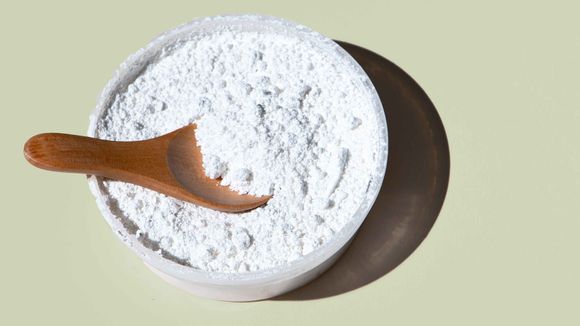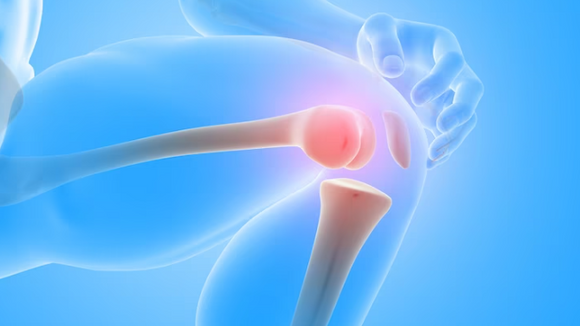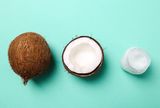What is collagen?
Collagen is a member of the family of naturally occurring proteins. It is one of the most abundant proteins present in mammals and is responsible for performing various important biological functions.
Collagen is the basic building structure of connective tissue in the human body. It is an essential structural protein, forming molecular "cables" that strengthen tendons and elastic sheets that support the skin and internal organs. Bones and teeth are built by adding mineral crystals to collagen. Collagen provides structure to our bodies by protecting and maintaining softer tissues and connecting them to the skeleton. But despite its critical function in the body, collagen is a relatively simple protein. [ref. 1]
About a quarter of all proteins in your body are in the form of collagen. Each fiber of collagen contains thousands of individual collagen molecules that are bonded together by cross-linking and staggered covalent bonds. Covalent bonds are the strongest bonds that can exist between protein molecules. The collagen molecules themselves are made up of 3 separate polypeptides or strings of amino acids. The filaments wrap around each other in an alpha-helix. The spiral is formed due to the correct amino acid sequence of the strands. The sequence is a recurrent pattern of glycine-proline-hydroxyproline, and there may be another amino acid according to the type of collagen (for example, alanine, arginine and others).
There are over 20 known types of collagen, but four of them are the most common:
- Type I: the most common type found in all connective tissues in the body;
- Type ll: located in the joints and intervertebral discs (pillows that serve as shock absorbers on the spine);
- Type III: the main component of reticular fibers, which are found in the skin and blood vessels;
- Type IV: a component of the kidneys, inner ear and eye lenses.
The unique properties of each type of collagen are due to segments in collagen molecules that disrupt the spiral structure. They are caused by the amino acids in the X positions of the polypeptide sequence. Different tissues of the body contain different amounts of each type of collagen. For example, cartilage contains a lot of type II collagen, while type IV collagen is mostly found in basal membranes. [ref. 2]
Collagen in the form of collagen peptides

For many years, collagen supplements were in the form of topical creams containing collagen, or collagen powder, to provide the missing amounts of collagen and exert a potential anti-aging effect.
But given the size of collagen — as simple as a structure, but quite a large molecule — experts were looking for a way to perfect these products and found it. As they found, something so large is not optimally absorbed into the skin or can not pass deep into the layers of the skin, where it is necessary to realize its effect.
A new generation of collagen products overcome this problem by being available in the form of hydrolyzed collagen and collagen peptides – much smaller strings of amino acids that make up collagen. These shorter chains are more easily absorbed by the human body and can be made into powder or packaged in pills to be taken orally.
Through the process of hydrolysis, one of the main advantages of collagen peptides is provided. Because collagen molecules have been broken down, a supplement of this type is easier to digest and absorb by the body. And this is really important, because when taking collagen in its entire form, the molecules are too large to pass through the gastric mucosa. This means that much of the food or supplement you take simply passes through your digestive system. With collagen peptides, you get a form of collagen that the body can make the most of it.
And last but not least, since vitamin C is necessary for collagen synthesis, you need to provide enough of it with your diet to support the action of collagen supplements. For this reason, some products with hydrolyzed collagen contain vitamin C for optimal absorption.
Benefits of collagen peptides
The two most commonly touted benefits of collagen peptides are improved skin health and reduced joint pain. But these products can also help support digestion and heart health, prevent bone loss and weight control.
Collagen peptides for weight loss
Millions of people around the world have trouble maintaining or managing their weight. With commitments past work, kids, friends, and more, it can be difficult to fit weight loss or weight management into our busy days.
The benefits of collagen peptides also include the potential to help you achieve your weight loss goals. In fact, liquid collagen for weight loss is one of the most popular ways that people provide themselves with collagen peptides.
Evidence suggests that adding high-quality protein to your diet helps you feel full longer and can balance hunger hormones so you don't feel hungry as often. In addition, collagen can help you lose weight if combined with a healthy diet and regular physical activity. [ref. 3]
Collagen peptides for muscle growth
In data cited from a study conducted in 2015, it was found that supplementing with protein in combination with endurance training can increase muscle mass and muscle strength in older individuals. More precisely, compared to placebo, supplementing with collagen peptides in combination with endurance training further improves body composition by increasing lean mass, muscle strength and fat loss. [ref. 4]
The daily dietary intake of hydrolyzed collagen appears to have another important potential role in improving bone remodeling at key stages of growth and development. These effects were described in a study conducted in 60 prepubertal Spanish children. [ref. 5]
Collagen Peptides for Hair Growth

In a study that looked at the role of collagen peptides in increasing hair growth in women with thinned hair, there were also interesting results. The overall conclusion is that oral supplementation with collagen peptides safely and effectively promotes significant hair growth in women with temporary hair thinning. Other natural products, such as biotin, iron, and zinc, are also recommended for hair loss treatment. [ref. 6]
Collagen Peptides for Skin Health

According to the study "The effect of oral collagen peptide supplementation on skin moisture and the dermal collagen network: evidence from an ex vivo model and randomized, placebo-controlled clinical trials", oral intake of collagen peptides significantly increases skin hydration after 8 weeks of intake. The density of collagen in the dermis significantly increased and the fragmentation of the dermal collagen network significantly decreased after 4 weeks of supplementation. The effects persist for 12 weeks thereafter. [ref. 7]
Collagen is also an important tool for ensuring healthy hair and nails. Because of this, adding collagen to your diet as part of your anti-aging routine can be beneficial.
The collagen content is concentrated in the dermis, the important middle layer of the skin that controls hair growth and blood flow. If you're wondering, "Does collagen help with hair loss?" the answer may be hidden in the dermis. This is important for another reason - by the middle of 20 years of life, we begin to lose about 1% of our collagen each year. One of the first signs of skin deterioration is sagging and wrinkles.
A review of the dermatological benefits of collagen peptides found that oral collagen supplements can aid in wound healing and skin aging. Collagen has been found to help increase skin elasticity, hydration, and collagen density in the skin. [ref. 8]
Also, increasing evidence demonstrates the efficacy of collagen peptides in improving skin physiology parameters in preclinical studies. Collagen peptides have been shown to increase hyaluronic acid production in dermal fibroblasts and improve skin barrier function by increasing the water content of the stratum corneum.
Furthermore, collagen peptides induce collagen synthesis at the mRNA and protein level, as well as the production of stronger collagen fibrils, promote skin fibroblast growth and induce fibroblast migration. In contrast, clinical evidence on the efficacy of collagen peptides on human skin is still scarce. [ref. 9]
Another study looked at the effect of daily intake of collagen peptides on skin damage induced by repeated UV-B irradiation. The intake of collagen peptide (0.2 g/kg/day) suppressed the UV-B-induced decrease in skin hydration, epidermis hyperplasia and reduction of soluble collagen type I. These results suggest that collagen peptides are useful as a dietary supplement for suppressing UV-B-induced skin damage and photoaging. [ref. 10]
Collagen peptides for joint health

The amino acids in collagen promote the growth of tissues, such as cartilage, and provide structural support to connective tissue. As we age, after intense exercise or after an injury, the cartilage in our joints can weaken. The benefits of collagen peptides include not only protection against joint damage and deterioration, but some evidence suggests that collagen may also prevent joint inflammation. [ref. 11]
In a study in people with osteoarthritis, an undenatured type II collagen supplement (unchanged through the overheating process or the acidic process that many collagen producers use to convert collagen protein into collagen peptides) improved symptoms of knee osteoarthritis compared to placebo, and was well tolerated by patients. Further studies that elucidate the mechanism of action of this supplement are needed. [ref. 12]









